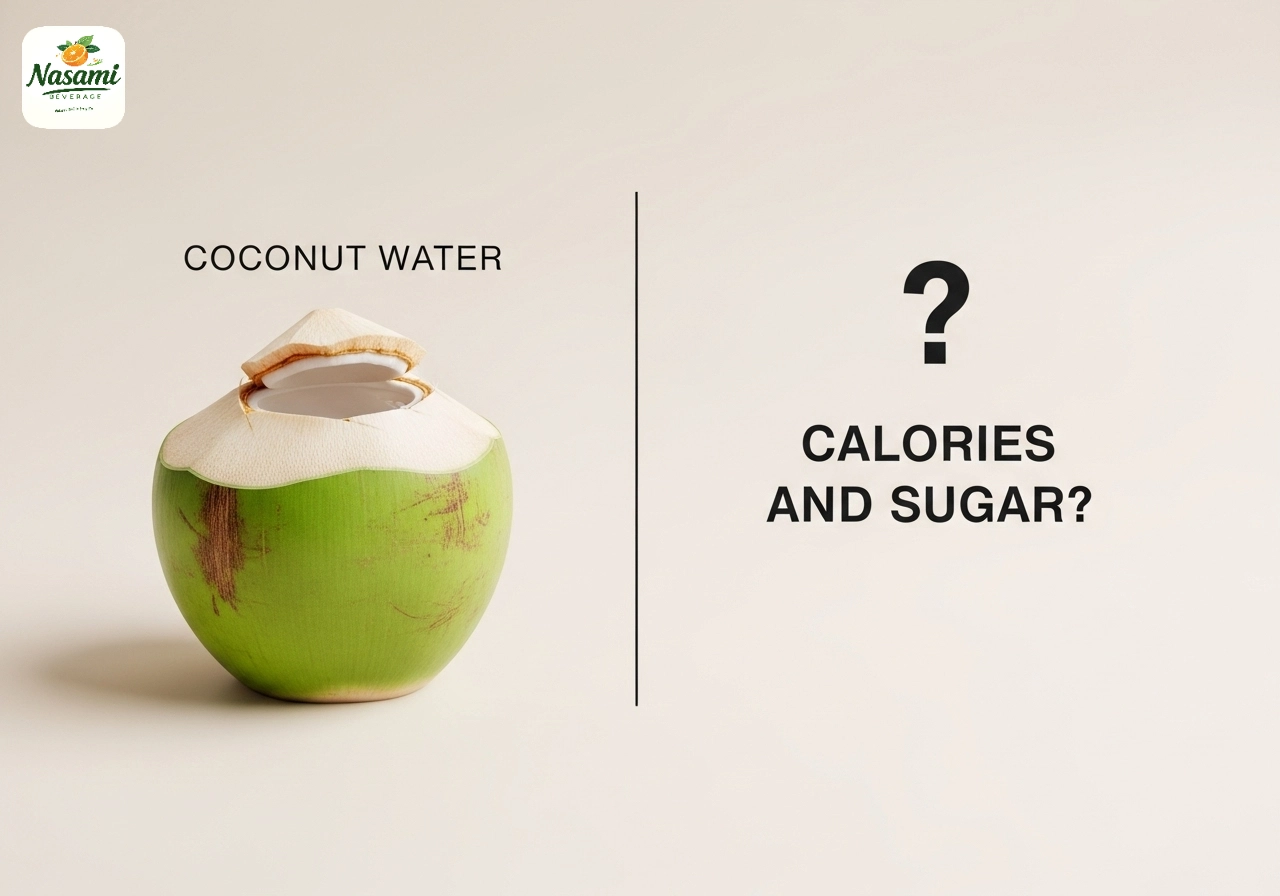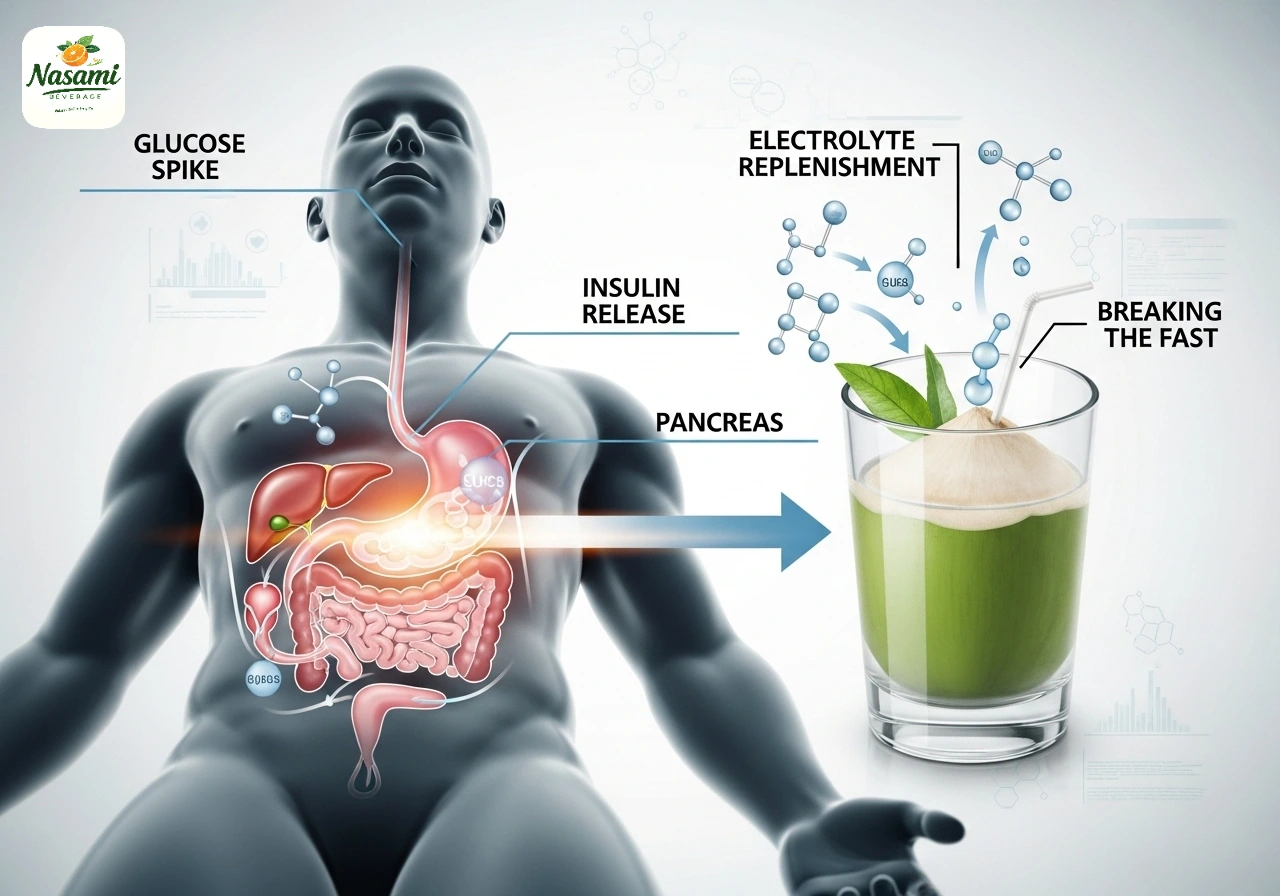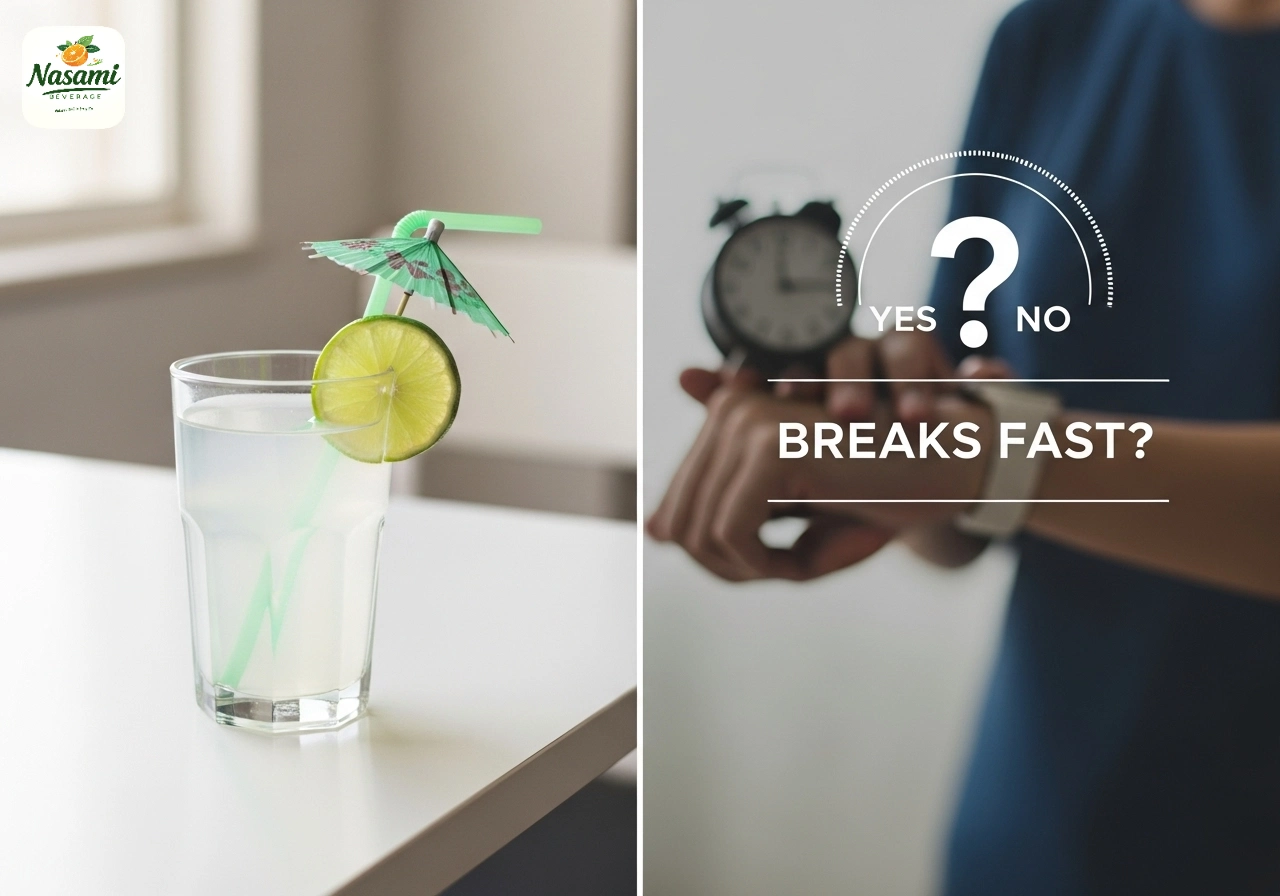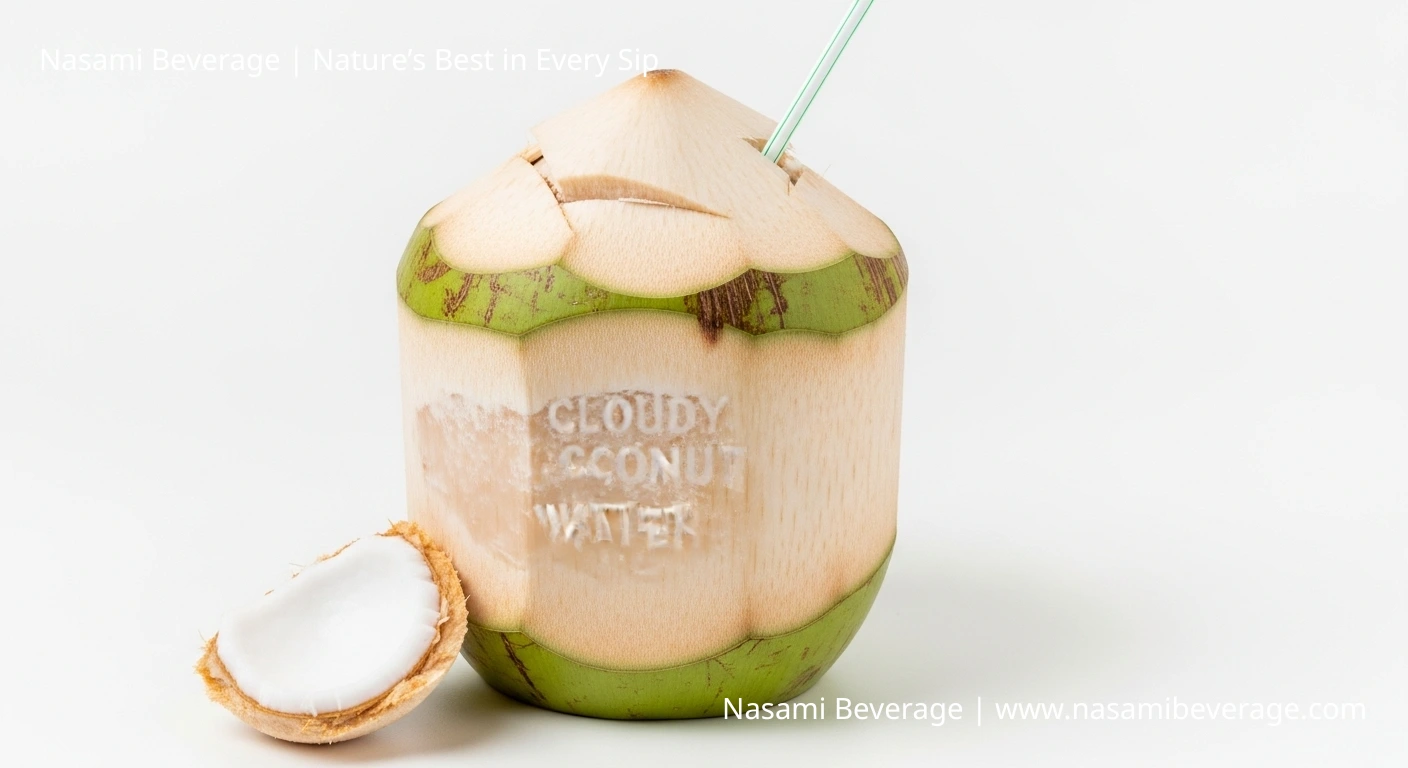Does Coconut Water Break a Fast?
The world of fasting, particularly intermittent fasting, has gained immense popularity for its potential health benefits, ranging from weight management to improved metabolic health.
As people strive to adhere to their fasting windows, a common question arises regarding various beverages: does coconut water break a fast? This query is crucial for anyone looking to maintain a pure fast and reap its full advantages.
In this comprehensive guide, we’ll delve into the nutritional science behind coconut water and its impact on your fasted state, providing clarity and actionable advice.
Disclaimer: This information is for educational purposes only and does not replace professional medical or veterinary advice. Always consult a qualified professional before making decisions related to your health or your pet’s health.
Why coconut water breaks a fast?
To understand whether does coconut water break a fast, we must first look at what constitutes a “fasted state” and how certain substances can disrupt it.
A true fast typically means consuming zero or very low calories, preventing an insulin response that signals the body to switch from fat burning to glucose utilization.

Calories and sugar
The primary reason coconut water does break a fast lies in its nutritional composition. Natural coconut water, often touted for its electrolytes and hydration properties, contains both calories and natural sugars.
While it’s a healthier alternative to many sugary drinks, it’s not calorie-free. A typical serving (around 240ml or 8 ounces) can contain anywhere from 45 to 60 calories and 10 to 15 grams of natural sugars. These sugars primarily consist of glucose and fructose.
Even if you’re curious about “is bai coconut water healthy,” remember that flavored or sweetened versions often contain even more added sugars and calories, making the answer to does coconut water break a fast an even more resounding yes.
These calorie and sugar counts, while seemingly small, are significant enough to trigger a metabolic response that will disrupt your fast.

Metabolic response
When you consume anything with calories and sugar, your body’s digestive system kicks into gear. The sugars in coconut water are absorbed into your bloodstream, causing a rise in blood glucose levels.
In response, your pancreas releases insulin. This insulin surge is the key factor in why does coconut water break a fast.
Insulin’s job is to transport glucose from your blood into your cells for energy. When insulin is present, your body shifts from a fat-burning state (ketosis, if you’re aiming for that) to a glucose-burning state.
This directly halts the processes associated with fasting, such as autophagy (cellular cleanup) and sustained fat oxidation, effectively breaking your fast.
Therefore, for those wondering does coconut water break a fast, the answer from a metabolic perspective is unequivocally yes.

What to drink instead?
If the goal is to maintain a fasted state and avoid the question of does coconut water break a fast, it’s essential to stick to beverages that do not contain calories or sugar.

Plain water
The undisputed champion of fasting-friendly beverages is plain water. It has zero calories, zero sugar, and no impact on your insulin levels. Staying hydrated during a fast is paramount, and water is the purest form of hydration.

Black coffee
For many, black coffee is a lifeline during fasting. Without added milk, sugar, or cream, it contains negligible calories and generally does not cause an insulin response.
In fact, some studies suggest that coffee might even enhance some fasting benefits. So, if you’re wondering does coconut water break a fast but still need a pick-me-up, plain black coffee is a safe bet.

Herbal tea
Similar to black coffee, unsweetened herbal teas are excellent alternatives. Varieties like green tea, peppermint tea, or chamomile tea contain minimal to no calories and can provide a comforting warmth or flavor without disrupting your fast. Just ensure they are free from added sweeteners or milk.
FAQ
Let’s address some of the most frequently asked questions surrounding this topic to provide maximum clarity on does coconut water break a fast.
What Constitutes Breaking a Fast?
Generally, consuming any food or beverage that triggers an insulin response or provides a significant amount of calories (typically above 10-20 calories) is considered breaking a fast.
The purpose of fasting is to keep insulin levels low, allowing the body to access stored fat for energy and initiate cellular repair processes.
Does Coconut Water Contain Calories and Sugar?
Yes, absolutely. As discussed, natural coconut water contains both calories (typically 45-60 per 8 oz) and natural sugars (10-15 grams per 8 oz). These amounts are sufficient to stimulate your metabolism and answer the question: does coconut water break a fast?
Coconut Water and Intermittent Fasting
For individuals practicing intermittent fasting, consuming coconut water during your fasting window will indeed break your fast.
While it offers coconut water health benefits scientific studies have highlighted, such as electrolyte replenishment and antioxidant properties, these benefits are best reaped during your eating window if your goal is strict fasting.
How Coconut Water Affects Insulin Response and Ketosis?
The sugars in coconut water will raise blood glucose, prompting an insulin release. This insulin surge directly inhibits fat burning and can knock your body out of ketosis if you are following a ketogenic diet in conjunction with fasting.
Therefore, if maintaining ketosis or maximizing fat oxidation is your goal, then does coconut water break a fast becomes an even more critical question, with a definitive affirmative answer.
When is the Best Time to Consume Coconut Water?
The best time to enjoy coconut water is during your eating window. It’s an excellent choice for rehydration, especially post-workout or during hot weather.
It can also be a refreshing alternative to sugary sodas. For instance, understanding coconut water vs gatorade shows it’s a more natural option for electrolyte replenishment when you’re not fasting.
Similarly, when considering coconut water vs kombucha for gut health, both offer benefits, but only kombucha may have very minimal calories that might be allowable in a “dirty fast” if unsweetened and in tiny amounts, whereas coconut water’s sugar content is too high.
Fasting-Friendly Beverage Alternatives
To reiterate, your best bets for staying hydrated and supporting your fast are:
- Plain water (still or sparkling)
- Black coffee (no sugar, milk, or cream)
- Unsweetened teas (herbal, green, black)
- Electrolyte supplements (zero-calorie, unflavored)
These options ensure you don’t inadvertently ask yourself, “Wait, does coconut water break a fast after all?” mid-fast.
In conclusion, for anyone strictly adhering to a fast, the answer to the question, does coconut water break a fast, is a clear and unequivocal yes.
Its natural sugars and caloric content are enough to trigger an insulin response, thereby disrupting your fasted state and halting the metabolic benefits you’re aiming for.
While coconut water is a healthy and hydrating beverage, rich in electrolytes and nutrients, it should be reserved for your eating window.
Stick to zero-calorie, sugar-free options like water, black coffee, or herbal teas to maintain the integrity of your fast.
Prioritizing these choices will help you achieve your fasting goals without the unintended consequence of inadvertently breaking your fast.



